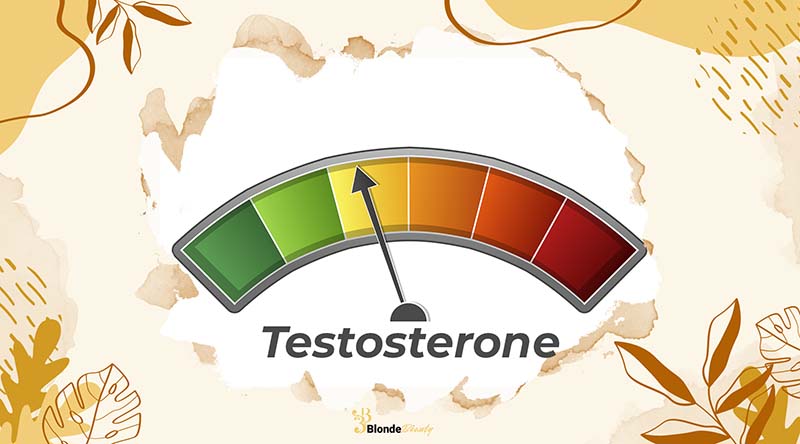Smoking is profoundly detrimental to your health, with connections to numerous severe and potentially fatal conditions such as cancer, respiratory diseases, diabetes, and stroke. Alarmingly, it can even mess with a young guy’s ability to perform in the bedroom starting from his twenties. But despite knowing all this, many people wonder: “Will quitting smoking Increase testosterone levels?”
The answer is a bit tricky. Quitting smoking might not directly pump up your testosterone levels, but it can definitely help fix some of the health problems caused by smoking.
In this article, we’ll talk about how smoking affects testosterone and why quitting is super important for staying healthy.
You should also read the following articles:
- Is Almond Milk Good for the Prostate? Uncover the Truth
- Will Quitting Alcohol Increase Testosterone? Affects and more
- Does Sleeping Naked Increase Testosterone? Unveiling the Truth
Will Quitting Smoking Increase Testosterone?
Although one might think that quitting smoking would naturally result in higher or more balanced testosterone levels, it’s crucial to acknowledge that smoking is only one factor among many influencing hormonal health. Other factors like body weight, diet, and existing health conditions also have significant impacts on hormone levels.
Men who are overweight or obese often have imbalances in their hormones, even after quitting smoking. Surprisingly, certain diets high in protein have been shown to decrease testosterone levels in men, according to some studies.
Additionally, if you have any other health issues or chronic conditions, your hormone levels may decrease as your body focuses on prioritizing your overall survival rather than hormonal balance.

Scientific Evidence That Smoking Increases Testosterone
Scientific studies on the impact of smoking on testosterone levels show varying results. Some research suggests smoking may temporarily raise testosterone levels, with
smokers occasionally showing higher total testosterone levels than non-smokers. However, any increase in testosterone from smoking is minimal and unlikely to cause noticeable clinical benefits or symptom improvements.
Despite this temporary effect, the consensus is clear: smoking significantly harms overall health, including hormonal health. The negative consequences of smoking on the body are vast, making it an unsuitable method to increase testosterone levels.
Additionally, some studies note a small decrease in testosterone levels after quitting smoking. Yet, the enduring health advantages of cessation—such as enhanced cardiovascular and respiratory health—significantly surpass any short-term drop in testosterone levels. Consequently, quitting smoking is strongly recommended for better health and quality of life, despite any minor temporary changes in testosterone levels.

Effects of Smoking on Other Hormones
While there’s some evidence indicating that smoking may affect testosterone levels, it’s important to recognize that smoking can also influence other hormones in the body.
One notable effect of smoking is its ability to increase cortisol levels. Cortisol is a hormone involved in the body’s stress response, and chronically elevated levels can lead to various health issues.
Moreover, smoking has been associated with decreased estrogen levels in women. This occurs because smoking can alter how the liver metabolizes estrogen, resulting in lower circulating levels of this hormone.
Furthermore, smoking has been shown to disrupt insulin production and sensitivity, increasing the risk of diabetes.
It’s evident that smoking can have widespread effects on hormones beyond just testosterone. Quitting smoking is highly beneficial for overall health and well-being, irrespective of its specific impact on any individual hormone.
Smoking Cessation and Testosterone Levels in Men
The relationship between smoking and testosterone levels is complex, and while current research suggests that quitting smoking may positively influence men’s hormone levels, this area requires further investigation to fully understand the long-term impacts.
A study published in the Journal of Sexual Medicine revealed that men who kicked the habit experienced a notable surge in testosterone levels within just one week of quitting. This increase continued over the span of six months, showcasing the enduring benefits of smoking cessation.
Another study in the British Journal of Urology International found that men who quit smoking showcased higher testosterone levels compared to those who persisted in smoking. Researchers suggested that smoking-induced damage to testicular cells could be a contributing factor to decreased testosterone production.
It’s important to acknowledge that while quitting smoking may lead to a testosterone boost, addressing other lifestyle elements like diet and exercise is equally crucial. These factors significantly impact hormone production and overall well-being.
For smokers looking to improve their health and testosterone levels, quitting smoking is a crucial first step. Consult your healthcare provider for guidance on cessation strategies and addressing other lifestyle factors that might influence hormone levels.
How to Increase Testosterone Without Smoking
While smoking might potentially increase testosterone levels, the health risks linked to it far outweigh any possible advantages. Thankfully, there are numerous alternative approaches to enhance testosterone production without resorting to smoking.
- Exercise regularly: Consistent physical activity, particularly resistance training, has been proven to elevate testosterone levels in both men and women.

- Maintain a balanced diet: Consuming a diet rich in protein, healthy fats, and nutrient-packed foods can support hormone production effectively.

- Prioritize sleep: Aim for 7-8 hours of sleep each night as adequate sleep is crucial for hormone regulation, including testosterone production.

- Manage stress: Chronic stress can spike cortisol levels, which can adversely affect testosterone production. Incorporate stress-relieving activities such as yoga or meditation into your routine.

- Consider supplements: Certain supplements like vitamin D, zinc, and magnesium have demonstrated the ability to bolster healthy testosterone levels.
By integrating these strategies into your lifestyle, you can promote optimal hormone production without resorting to smoking or other risky behaviors. If you have concerns regarding your testosterone levels or overall health, consulting your doctor for personalized advice and additional strategies is advisable.
FAQs
Does Smoking Cigars Increase Testosterone?
Some studies suggest a link between smoking and increased testosterone levels, but others show the opposite effect.
However, the impact of smoking on testosterone levels can vary depending on individual factors such as age, diet, and lifestyle.
Regardless, the health risks of smoking, including lung cancer and heart disease, outweigh any potential benefits.
Is Nicotine Good for Testosterone?
No, nicotine is not beneficial for testosterone levels. Research indicates that nicotine exposure can have a negative impact on the endocrine system responsible for hormone production, including testosterone. Chronic nicotine use may lead to lower testosterone levels.
Does Weed Lower Sperm Count?
Yes, regular cannabis use can negatively affect sperm count and motility. THC, the psychoactive component in cannabis, can decrease sperm production and reduce fertility in men. The impact may vary based on frequency and amount of cannabis use.
How Does Nicotine Affect Sperm?
Nicotine can immediately and long-term affect sperm quality, including motility, morphology, and overall count. The duration of nicotine’s impact on sperm varies, but studies suggest adverse effects can persist as long as nicotine use continues.
Sperm generation cycles are approximately 74 days, so changes to sperm quality from nicotine exposure could potentially be reversed after cessation of use over several months, assuming no other health issues.
Conclusion
In conclusion, when it comes to the question, “Will Quitting Smoking Increase Testosterone Levels?“, it’s clear that the connection between smoking and testosterone is complex and remains unsettled. Some research suggests smoking might increase testosterone levels, while other studies question this finding.
What’s noticeable to understand is that smoking carries significant health risks, making it an unsuitable approach to try and increase testosterone levels. If you’re concerned about your testosterone levels, the best step is to consult a healthcare provider. They can suggest safe and effective ways to boost testosterone, tailored to your unique health situation.
Visit other Blondebeauty articles to gain more health knowledge.

Laureate Professor Clare Collins
Professor Clare Collins is a leading expert in nutrition and dietetics at the School of Health Sciences, part of the College of Health, Medicine and Wellbeing. Her work is changing the way we think about food and health. She grew up as one of nine children and was the first in her family to finish high school and go to college. This background gave her a strong work ethic and a deep appreciation for seizing opportunities.
As the Director of the Hunter Medical Research Institute’s Food and Nutrition Program and a recipient of three NHMRC Research Fellowships, Professor Collins is making a big difference in public health. She focuses on helping people who are often overlooked, using new technologies like apps and online programs to improve their nutrition and reduce the risk of chronic diseases.
Professor Collins is well-respected and has been recognized as a Fellow in four major health and science organizations. She leads a diverse team of experts, including dietitians, computer scientists, and engineers, working together on global health projects.
Her achievements are impressive. She has received over $29 million in research funding, published more than 450 papers, and helped 35 PhD and Master’s students complete their degrees. She’s also active in sharing her knowledge with the public. She has developed tools like the Australian Eating Survey and the Healthy Eating Quiz, and she often appears in the media to talk about nutrition.
PUBLISHED ARTICLES
- Collins, C. (2019). “The Effect of a Pilot Dietary Intervention on Pain Outcomes in Patients Attending a Tertiary Pain Service.”
- Collins, C. (2022). “Variation in cardiovascular disease risk factors among older adults.”
- Collins, C. (2022). “Evaluation of an online intervention for improving stroke survivors’ health-related quality of life: A randomised controlled trial.”
These articles show Professor Collins’s commitment to understanding how better nutrition can improve health. Her work is important for researchers, doctors, and anyone interested in healthy living.
